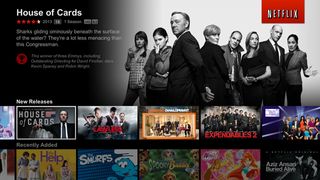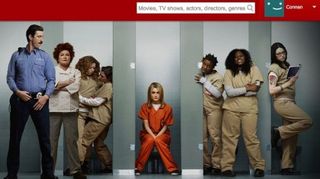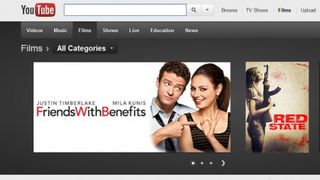Origin of the series: how TV producers are adapting for on demand
How streaming is changing the television game

Ten years ago, the TV industry was a simpler place. People watched a show on television, then perhaps bought it on DVD if they really loved it. The biggest thing producers had to worry about was making sure there was a commentary track and some outtakes for the DVD extras.
Fast forward a decade and everything has changed. Audiences are fragmented, with relatively small numbers tuning in when a show is broadcast, but many more later watching it on "catch-up" services like BBC's iPlayer in the UK and Hulu Plus in the US. Yet more might illegally download it, or merely watch clips of episodes on YouTube. DVD-buyers still exist, but many people also now buy series on Apple's iTunes platform, or through a streaming subscription to Netflix or Amazon On Demand, which are starting to bypass traditional broadcast TV by commissioning their own series.
"We are now challenged with making television that can live beyond its singular broadcast window," explains Dan Tucker, a freelance senior producer who's worked with the BBC, Disney, Endemol and more.
"The commissioners who choose and then fund programmes are thinking about audiences in new ways."
What a producer does
The role played by a producer in putting together a television series is complex and multifaceted. It's their job to make sure a programmes are delivered on time, on budget, and to as high a standard as possible. They're often the first and last people involved, from the earliest research and scripts to the end of post-production and final delivery of the show. "The producer is the keystone in a programme's lifecycle; bringing together and leading the team, responsible for delivery and also a key editorial force in making the show the best it can be," says Tucker.

That means getting the most out of all the platforms available to them, which can involve tweaking a show so it resonates better with an online audience. "The viewing figures on YouTube often totally dwarf those of linear television", says Tucker. TV shows no longer end at the TV – they can inspire internet memes that last far longer than the shows themselves, having a profound effect on popular culture.
Producers are also discovering that people tend to watch different genres of television in different ways. "Most of the comedy content I watch from TV I watch whilst commuting," says Tucker. "Then I'll sit down with my wife and watch back-to-back episodes of a drama. Big documentary series are often watched on long rail or plane journeys."
Get daily insight, inspiration and deals in your inbox
Get the hottest deals available in your inbox plus news, reviews, opinion, analysis and more from the TechRadar team.
"We're now all really keen to have our landmark documentary series on Netflix."
That leads to a totally new set of priorities, Tucker explains. "We're now all really keen to have our landmark documentary series on Netflix because it has the long tail and the audience reach. It's much more valuable than a repeat late at night on a sister channel to one of the big broadcasters that might only pull in a few tens of thousands of viewers. Once."
Ahead of the curve
That's not all. As well as having to adapt to a new audience, producers now have to contend with having to gather material from a far wider range of sources, many of which have owners that are difficult to track down. "We often want to use content from YouTube and other shared media platforms, but the accreditation or permissions for obtaining copyright clearance are a bit more obscure," says Tucker.

In fact, smart producers often look at what's big on YouTube to guide their work. "In the case of videogames, for example, TV is years behind," says Tucker. "YouTube is an enormous repository for content that is eminently shareable. It's both a rival and an amazing research tool for traditional telly."
Most Popular


